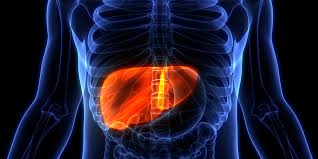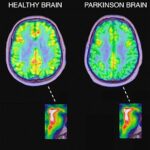Drug Induced Liver Injury: List, Causes, Types

What Drug Induced Liver Injury
Drug-induced liver injury (DILI), also known as drug-induced hepatotoxicity is defined as abnormalities in liver tests or as hepatic dysfunction caused by medications (prescription or OTC), herbal and dietary supplements (HDS), or other xenobiotics that cannot be explained by other causes.
Because the liver is responsible for concentrating and metabolizing a majority of medications, it is a prime target for medication-induced damage. Among hepatotoxic drugs, acetaminophen (paracetamol) is the most often studied. However, a broad range of different pharmacological agents can induce liver damage, including anesthetics, anticancer drugs, antibiotics, antituberculosis agents, antiretrovirals, and cardiac medications. In addition, a plethora of traditional medical therapies and herbal remedies may also be hepatotoxic.
What are the types of drug-induced liver injury?
There are two types of Drug-induced liver injury namely:
- Intrinsic drug-induced liver injury: This refers to liver toxicity induced by a drug in a predictable and dose-related manner (e.g., acetaminophen or paracetamol).
- Idiosyncratic drug-induced liver injury: This type of liver injury occurs less frequently, it is associated with a less consistent dose-toxicity relationship and a more varied presentation.
More than 900 drugs, toxins, and herbs have been reported to cause liver injury, and drugs account for 20-40% of all instances of fulminant hepatic failure. Approximately 75% of the idiosyncratic drug reactions result in liver transplantation or death. Drug-induced hepatic injury is the most common reason cited for withdrawal of an approved drug.
When drugs injure the liver and disrupt its normal function, symptoms, signs, and abnormal blood tests of liver disease develop. Abnormalities of drug-induced liver diseases are similar to those of liver diseases caused by other agents such as viruses and immunologic diseases. For example, drug-induced hepatitis (inflammation of the liver cells) is similar to viral hepatitis; they both can cause elevations in blood levels of aspartate amino transferase (AST) and alanine aminotransferase (ALT) (enzymes that leak from the injured liver into the blood) as well as anorexia (loss of appetite), fatigue, and nausea. Drug-induced cholestasis (interference with the flow of bile that is caused by injury to the bile ducts) can mimic the cholestasis of autoimmune liver disease (e.g., primary biliary cirrhosis or PBC) and can lead to elevations in blood levels of bilirubin (causing).
Drugs withdrawn from the market secondary to hepatotoxicity
In the last few years, the US Food and Drug Administration (FDA) has withdrawn 2 drugs from the market for causing severe liver injury: bromfenac and troglitazone. Bromfenac (Duract), a nonsteroidal anti-inflammatory drug (NSAID), was introduced in 1997 as a short-term analgesic for orthopedic patients. Although approved for a dosing period of less than 10 days, patients used it for longer periods. This resulted in more than 50 cases of severe hepatic injury, and the drug had to be withdrawn in 1998. Troglitazone (Rezulin) is a thiazolidinedione and was approved in 1997 as an antidiabetic agent. Over 3 years, more than 90 cases of hepatotoxicity were reported, which resulted in withdrawal of this drug.
Kava kava, an herb used for anxiety, was reported as being hepatotoxic and was withdrawn from the German market. The FDA has also issued a warning in this country. This demonstrates the importance of post-marketing surveillance to identify reactions that are not reported or are underreported in drug trials.
Pemoline (Cylert), used for attention deficit disorder and narcolepsy is no longer available in the United States. The Food and Drug Administration (FDA) concluded that the overall risk of liver toxicity from pemoline outweighs the benefits. In May 2005, Abbott chose to stop sales and marketing of their brand of pemoline (Cylert) in the U.S. In October 2005, all companies that produced generic versions of pemoline also agreed to stop sales and marketing of pemoline.
Other drugs that have significant limitations of use because of their hepatotoxic effects are felbamate (Felbatol), an antiepileptic used for complex partial seizures; zileuton (Zyflo), indicated for asthma; tolcapone (Tasmar), used for Parkinson disease; trovafloxacin (Trovan), an antibiotic; benoxaprofen, an NSAID; and tienilic acid, a diuretic.





